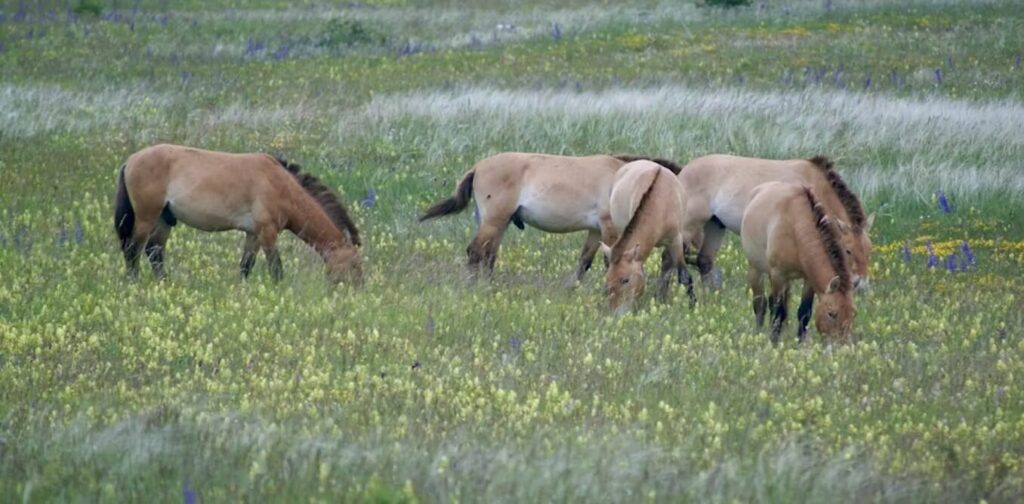[PhD defence] 04/12/2024 - Clémentine Mutillod: "Conceptual, taxonomic and functional approaches to the influence of domestic or 'wild' herbivores on the dry grasslands of the Causse Méjean (Massif Central, France)" (UMR IMBE - EECAR)
Clémentine Mutillod will submit her thesis on 4 December 2024 on the following topic: "Conceptual, taxonomic and functional approaches to the influence of domestic or 'wild' herbivores on the dry grasslands of the Causse Méjean (Massif Central, France)".
Date and place
Wednesday 04 December 2024
2.00 pm, Amphitheatre, IUT d'Avignon
337 chemin des Meinajariés, Site Agroparc BP 61207
84911 Avignon cedex 09
To follow the presentation live : https://bbb.univ-avignon.fr/rooms/ail-pvb-az2-mps/join
Discipline
Ecology - Population biology and ecology
Laboratory
UMR 7263 IMBE - Mediterranean Institute of Biodiversity and Ecology EECAR
Composition of the jury
- Nathalie Pettorelli, Professor, Institute of Zoology London, rapporteur
- Bertrand Schatz, CNRS Research Director, UMR Cefe Montpellier, Rapporteur
- Marie-Lise Benot, Senior Lecturer, INRAE UMR Biogeco Bordeaux, examiner
- Frédéric Joly, Research Fellow, INRAE UMR Herbivores, St-Genès-Champanelle, examiner
- Thierry Dutoit, CNRS Research Director, UMR Imbe, IUT Avignon, co-director
- Elise Buisson, Lecturer, HDR, UMR Imbe, IUT Avignon, co-director
- Laurent Tatin, Associate researcher, UMR Imbe, co-supervisor, invited
- Sébastien Carton de Grammont, Takh Association for Przewalski's horse, guest
Summary
The urgent need to restore ecosystems in the face of declining biodiversity and associated ecological functions has brought rewilding to the forefront of scientific and media attention. Two observations have emerged from recent research: (i) the confusion that exists between ecological restoration and rewilding and (ii) a growing interest in trophic rewilding via the reintroduction of keystone species or ecosystem engineers, such as large herbivores. The latter are of particular interest because of their direct and indirect effects on ecosystems through the consumption of plants, their excrement and trampling. In addition, their wild populations have suffered major extinctions as a result of climate change and hunting by humans, producing cascading effects and loss of ecosystem functions. However, there are still few studies evaluating the effects of their return to ecosystems, on their biodiversity and functions, and even fewer comparing more traditional conservation and restoration actions with the use of domestic animals. Our experimental results obtained following the introduction of Przewalski's horse on the Causse Méjean demonstrate the importance of a multi-compartite approach (flora, fauna, ecosystem services) in order to assess this type of project more globally, as well as continuing this research in the future to distinguish the effects of the social aspect of herbivores managed 'as wild animals' on the ecosystem. A better understanding of the specific characteristics of the type of herbivore and the type of management will then enable us to refine decisions on the conservation and/or restoration of open and semi-open habitats.

Updated on 19 November 2024